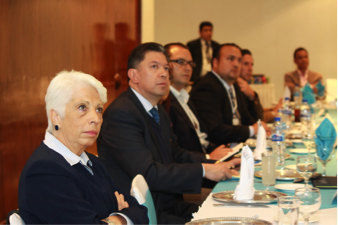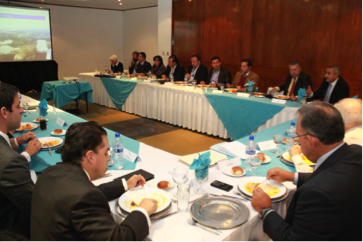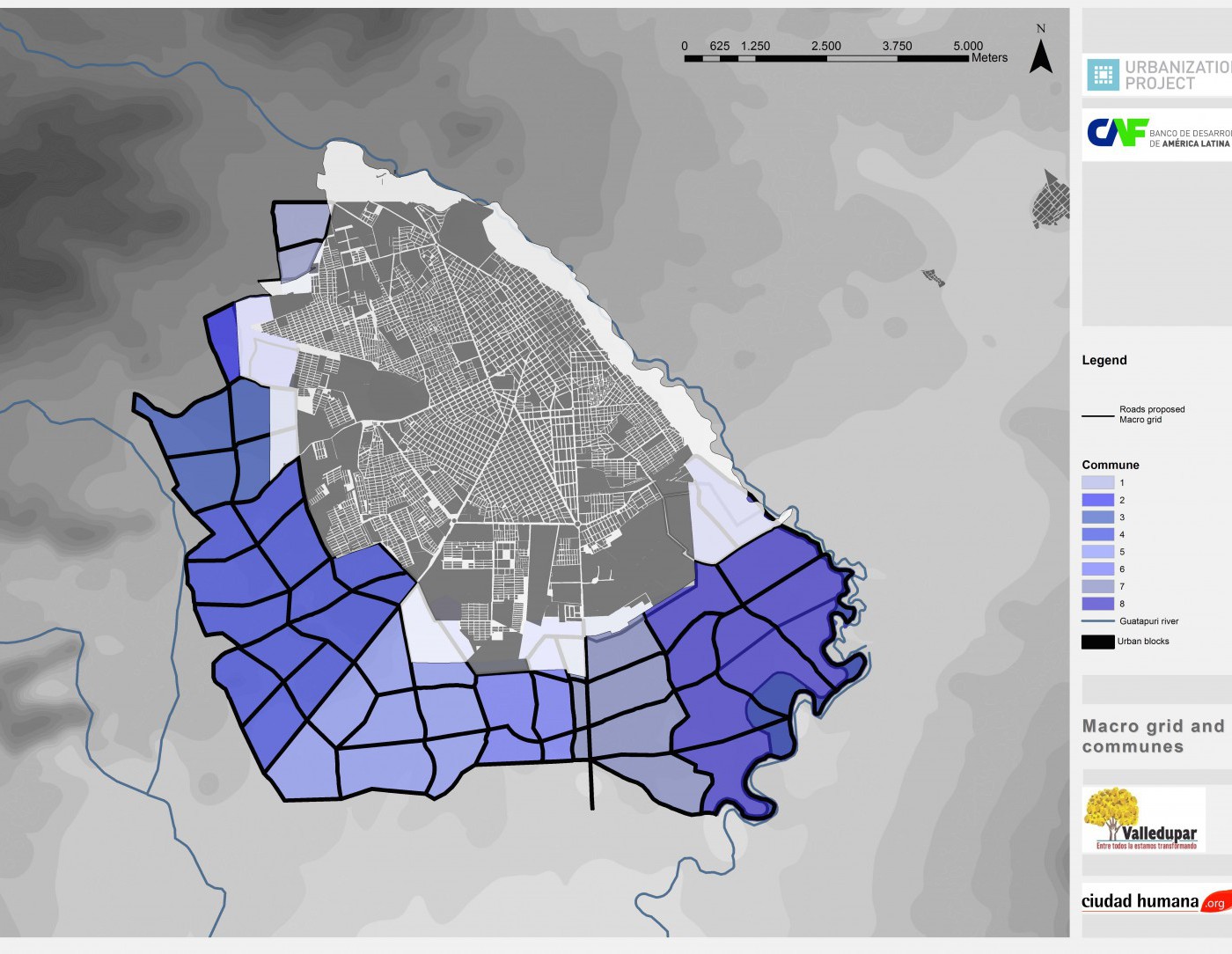Urban Expansion Initiative Launches in Mexico
+ Alejandra Rangel Smith
Para Espanol, haga clic aqui.
On October 15, 2014, the Urban Expansion Initiative launched its Exploratory Phase in Mexico at the X International Congress on Sustainable Transport (“X Congreso”) in Mexico City. Together with Raúl Fernando Villegas Ochoa, Valledupar’s Secretary of Planning, I presented the vision for an Urban Expansion Initiative in Mexico before a crowd that included the Mayor from the Corregidora Municipality and representatives from Reynosa, Solidaridad, Corregidora, Huimilpan, El Marques, Mexicali, Puebla, Hermosillo, and Tijuana. Also attending were the federal government institutions that regulate or finance urban development - Banobras, SEDATU, the Senate and CONAVI.
Urban Expansion Initiative in Latin America and the Caribbean
More than 450 cities in Latin America and the Caribbean had 100,000 or more residents in the year 2000. Of these, 61 cities are growing rapidly and will double their populations in the next 30 years. The Urbanization Project estimates that these cities’ territories will grow to 3.6 to 4.9 times their current size within the same period. These cities have two options: either they can try to contain this growth, or they can plan for it. Too often, efforts to contain urban growth lead to high prices in the formal housing sector and disorganized informal development on the urban periphery. Cities are far better off coming to terms with inevitable urban expansion and making plans to accommodate it in a sustainable fashion.
The Urban Expansion Initiative, led by Shlomo Angel, works with cities to make room for their inevitable expansion. The initiative has a “stakes-in-the-ground” orientation—a focus on real and tangible results in rapidly growing cities. The Urban Expansion Initiative works with municipal officials and their colleagues at the regional and national level to make realistic long-term preparations for urban expansion.
Action Plan
Our Action Plan has two phases.
Phase One is based on contact, visits, and workshops. We will seek out visionary mayors and work with them to compile information and train local teams on urban expansion. These municipal teams will then present a Basic Urban Expansion Plan, which will include, but will not be limited to: population growth projections, urban land cover projections, and a plan for open space and the arterial roads that will carry trunk infrastructure in the area of urban expansion. For a generalized description of the process, click here.
Phase Two will involve determining the best type of intervention and calculating the cost and necessary work to secure the land for public open space and the right of way for arterial roads in the area of expansion. It will also include topographical, legal, and environmental studies. Partners will finance the implementation and the cities themselves will lead the project.
X Congreso
Between October 13, 2014, and October 15, 2014, over 8,000 transport and urban planning professionals, government officials, civil society actors, and business leaders attended the tenth annual International Congress on Sustainable Transport (“Congreso”) in Mexico City, Mexico. According to EMBARQ Mexico, “Congress is the largest conference on sustainable urban mobility in Latin America, and convenes experts in fields from transport, urban design, government, and public policy to share global best practices on improving quality of life in cities.” The conference focused on “reinventing and reinvigorating cities through sustainable transport and urban development.” Andrew Steer, the President and CEO of the World Resources Institute, lauded the Congress for its exceptional energy and productivity.



